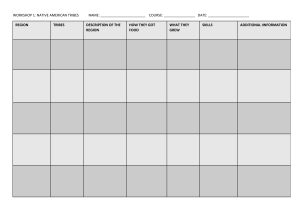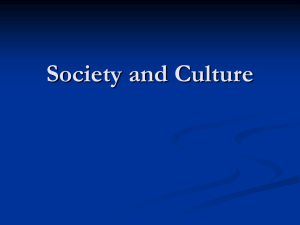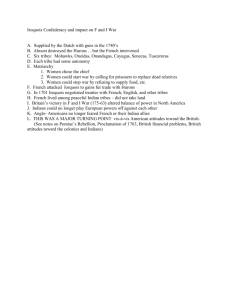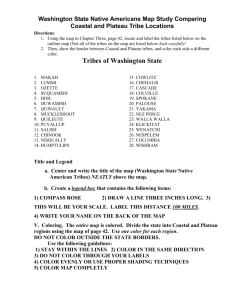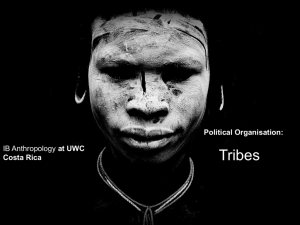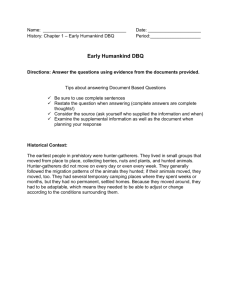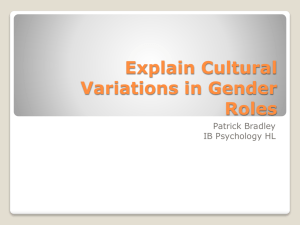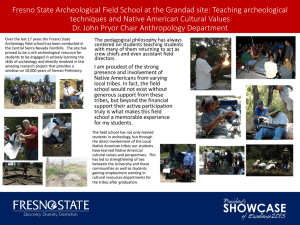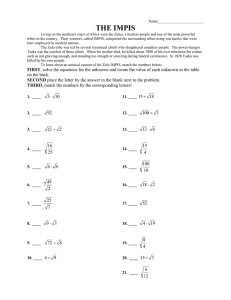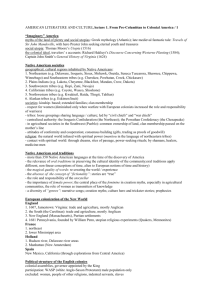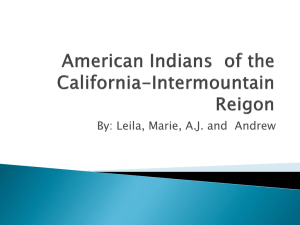Hunter-Gatherers - harveytechworldhistory
advertisement
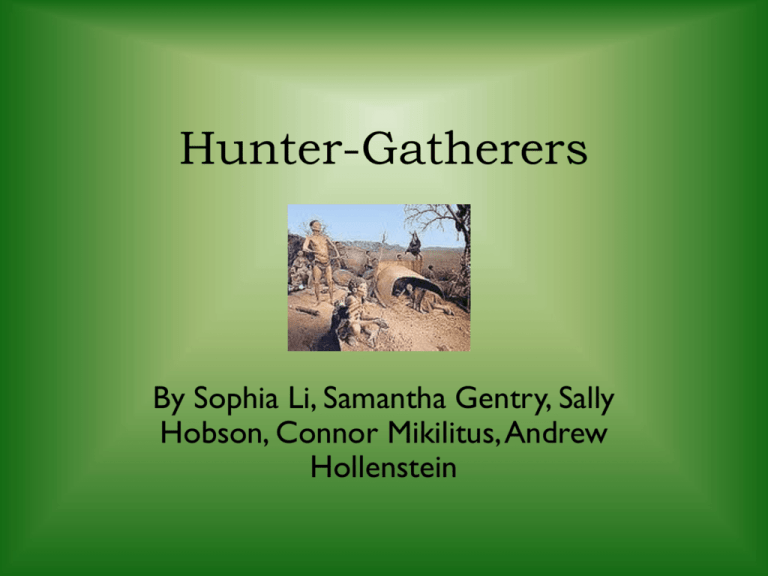
Hunter-Gatherers By Sophia Li, Samantha Gentry, Sally Hobson, Connor Mikilitus, Andrew Hollenstein Human-Environment Interaction • Hunting and gathering was used for 95% of the times people inhabited the earth. • Gathered berries, nuts, roots, and grains. • Scavenged dead animals, hunted live animals, and fishing • Life expectancy was a little more than 35 years • Migration: Africa, Eurasia, Australia, Americas, Pacific Islands • Population may have been as low as 10,000 people alive 100,000 years ago. It then grew to 500,000 people nearly 30,000 years ago. Culture • Neolithic people learned when the seasons would take place and associated the seasons with the plants that grew. • 20,000 years ago Afro-Eurasians made stone and bone tools such as hand axes, and began to paint deep inside caves. • Made rock deep inside caves far from living spaces which suggests a “ceremonial space” separated from ordinary life. • At the end of the period, hunter- gatherers began to use more agriculture than before. Politics • • • • There were no specific leaders for the tribes. Physical competitions did occur There was little interaction between tribes Sometimes internal conflict with in the tribes occurred, but they were easily solved. Economics • Hunter-gatherers rarely traded with other tribes because they could not transport many goods. • They worked fewer hours more frequently and had more leisure time. • Scholars call them the “original affluent society” because they had all of their basic needs. • Typically there was no specialization. Simply everyone could do anything that anyone else could. Hunter- Gatherer Society Lived in small bands of 25- 50 people. Most people were related. Men hunted, women gathered. Women provided 70% of the group’s food and income. • Males and females shared many other tasks. • • • • Sources • Ways of the World, by Robert W. Strayer • http://www.terradaily.com/reports/Role_Of_S howoff_Hypothesis_In_Social_Decisions_Inve stigated.html • http://www.psychologytoday.com/blog/freedo m-learn/200907/play-makes-us-human-v-whyhunter-gatherers-work-is-play
